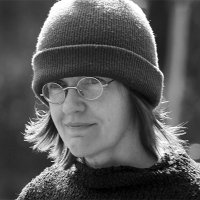Diane Stubbings

Diane Stubbings is a writer and critic based in Melbourne. Her plays have been shortlisted for a number of Australian and international awards, and staged in Sydney, Melbourne and New Zealand. She has written for Australian Book Review, The Australian, The Canberra Times, and the Sydney Review of Books. Her study of Irish Modernism was published by Palgrave. Diane has recently completed a PhD at VCA, University of Melbourne, investigating intersections between science and theatre.
More than a century ago, long before gender-blind casting became modish, the incomparable Sarah Bernhardt (1844–1923), a woman in her fifties, had the audacious idea that she would play Hamlet. Not only would she – scandalously – don breeches to do so, but she would also defy the critical consensus that Hamlet was a man in his early thirties. In her imagination, Hamlet was a wet-behind-the-e ... (read more)
Since first being produced at Sydney’s Griffin Theatre in 2019, Suzie Miller’s play Prima Facie – a legal drama about consent and sexual violence – has become something of a phenomenon. Awarded Griffin Theatre’s playwriting prize in 2018, the subsequent production was enthusiastically received by audiences and critics alike. A 2022 West End production – propelled by the star power of K ... (read more)
At the conclusion of the third women’s cricket test against England in 1935, Victorian all-rounder Nance Clements souvenired her name plate from the Melbourne Cricket Ground scoreboard. What she discovered on the reverse side of the plate, as Marion Stell recounts in The Bodyline Fix: How women saved cricket, was the name Larwood.
Harold Larwood was, of course, the English bowler who had terror ... (read more)
In American culture, the baseball novel is virtually a genre unto itself, baseball offering a metaphor through which the American dream – the rise and fall and rise again of unlikely heroes – might be interrogated. The prologue of Don DeLillo’s Underworld (1997) offers a stunning example: within all the noise and spectacle of a baseball final an entire nation, as it teeters on the edge of th ... (read more)
William Shakespeare is hiding behind a set of drapes. Wearing baggy black breeches, he is a buffoon, waggishly stalking his prey. His prey is Emilia Bassano, the young and (unusually for the times) educated daughter of a musician at the court of Elizabeth I, a woman who longs to be recognised for ‘how brilliant [her] mind is’. She wants to write and be published, to speak and be heard. When sh ... (read more)
In 1917, at the height of World War I, a fire destroyed the Greek city of Salonika (Thessaloniki), a staging post for Allied troops. The centre of an ‘Ottoman polyglot culture’, Salonika was at the time home to large numbers of refugees, many of them Jewish and Roma. It was in one of the refugee hovels that the fire started, an ember from a makeshift stove igniting a bundle of straw. From that ... (read more)
Australian playwright Suzie Miller, a mainstay of independent stages both in Australia and overseas, is having something of a breakthrough year. Two of Miller’s play are having their mainstage premières – Anna K and RBG, Miller’s ode to American jurist Ruth Bader Ginsberg (Sydney Theatre Company, October–December) – and her Griffin-award-winning play Prima Facie (2019) has been a sell-o ... (read more)
Daisy Simmons – twenty-four years old, the wife of a major in the Indian Army, mother of two children, ‘dark [and] adorably pretty’ – is an ephemeral presence in Virginia Woolf’s fourth novel, Mrs Dalloway (1925). Clarissa Dalloway’s former lover, Peter Walsh, has travelled to London from India to secure a divorce so that he might marry Daisy. From a mere handful of references, we are ... (read more)
On paper, American playwright Adam Rapp’s The Sound Inside is an intriguing piece of writing. Bella Baird, a professor of creative writing at Yale University, ‘emerges from the darkness’ onto a nondescript stage and introduces herself. She speaks in the ‘heavily embroidered, figurative’ sentences that she dissuades her students from using, a liberty she allows herself standing here, alon ... (read more)
